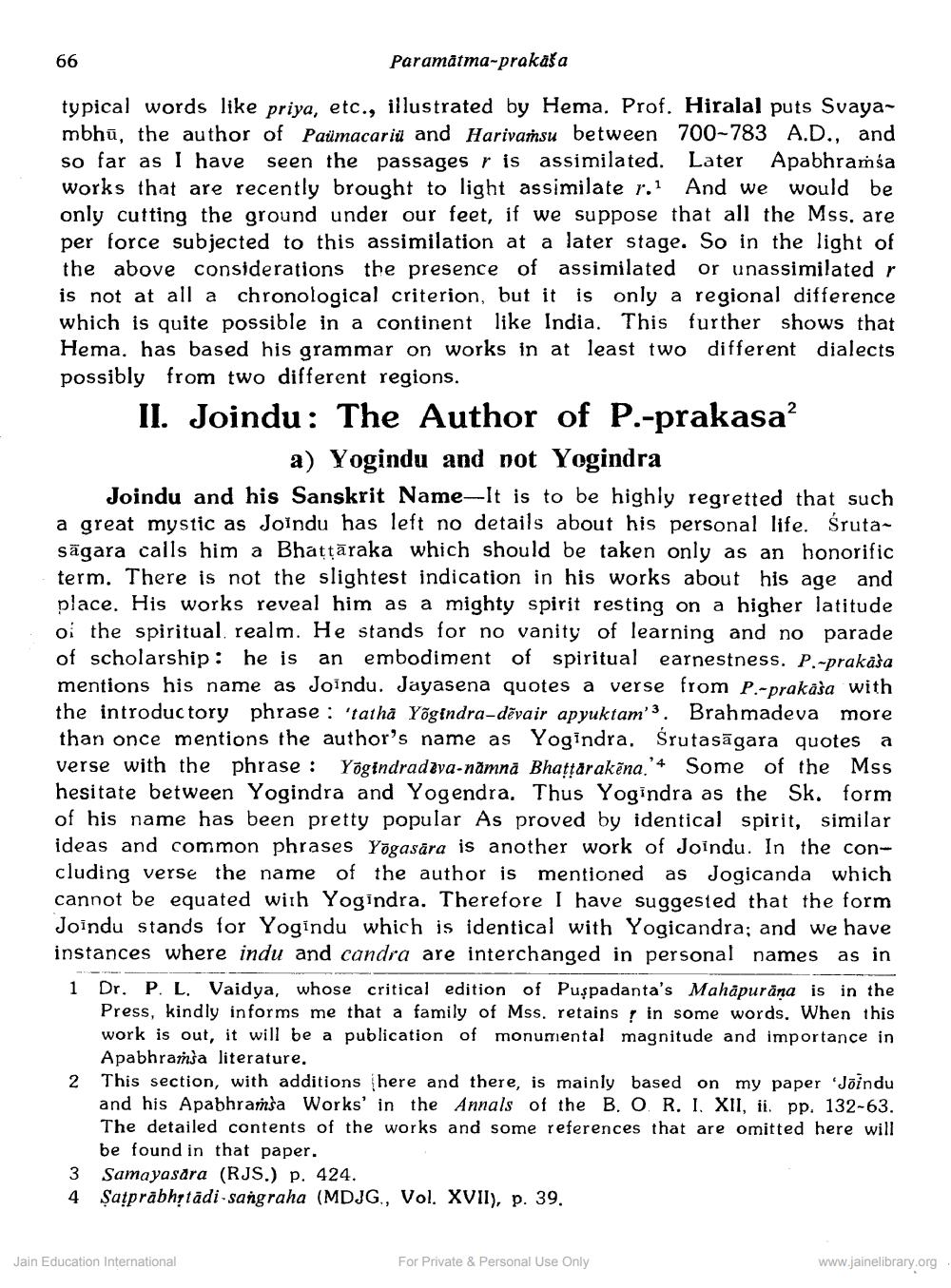________________
66
Paramatma-prakaa
typical words like priya, etc., illustrated by Hema. Prof. Hiralal puts Svayambha, the author of Palmacaria and Harivamsu between 700-783 A.D., and so far as I have seen the passages r is assimilated. Later Apabhramsa works that are recently brought to light assimilate r. And we would be only cutting the ground under our feet, if we suppose that all the Mss. are per force subjected to this assimilation at a later stage. So in the light of the above considerations the presence of assimilated or unassimilated r is not at all a chronological criterion, but it is only a regional difference which is quite possible in a continent like India. This further shows that Hema. has based his grammar on works in at least two different dialects possibly from two different regions.
II. Joindu: The Author of P.-prakasa
a) Yogindu and not Yogindra
Joindu and his Sanskrit Name-It is to be highly regretted that such. a great mystic as Joindu has left no details about his personal life. Śrutasägara calls him a Bhattaraka which should be taken only as an honorific term. There is not the slightest indication in his works about his age and place. His works reveal him as a mighty spirit resting on a higher latitude of the spiritual realm. He stands for no vanity of learning and no parade. of scholarship: he is an embodiment of embodiment of spiritual earnestness. P.-prakala mentions his name as Joindu. Jayasena quotes a verse from P.-prakala with the introductory phrase: tatha Yogindra-divair apyuktam. Brahmadeva than once mentions the author's name as Yogindra. Śrutasägara quotes a verse with the phrase: Yögindradeva-namnă Bhaṭṭārakēna. Some of the Mss. hesitate between Yogindra and Yogendra. Thus Yogindra as the Sk. form of his name has been pretty popular As proved by identical spirit, similar ideas and common phrases Yogasára is another work of Joindu. In the concluding verse the name of the author is mentioned as Jogicanda which cannot be equated with Yogindra. Therefore I have suggested that the form. Jo1ndu stands for Yogindu which is identical with Yogicandra; and we have instances where indu and candra are interchanged in personal names.
Dr. P. L. Vaidya, whose critical edition of Puspadanta's Mahapurana is in the Press, kindly informs me that a family of Mss. retains in some words. When this work is out, it will be a publication of monumental magnitude and importance in Apabhrasha literature.
2 This section, with additions here and there, is mainly based on my paper 'Joindu and his Apabhramsa Works' in the Annals of the B. O. R. I. XII, ii. pp. 132-63. The detailed contents of the works and some references that are omitted here will be found in that paper.
Samayasara (RJS.) p. 424.
4 Satprabhṛtādi-sangraha (MDJG., Vol. XVII), p. 39.
Jain Education International
For Private & Personal Use Only
www.jainelibrary.org




